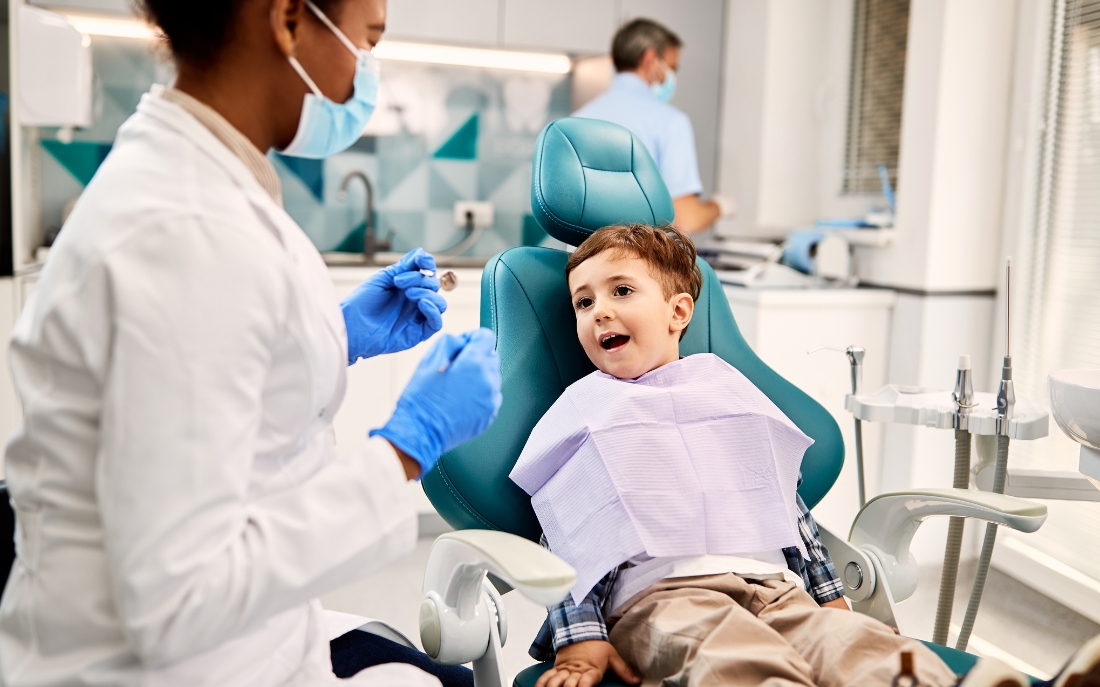How Pediatric Dental Specialist Handle Common Dental Problems?


Caring for Your Child’s Smile: Insights from a Pediatric Dentist
Caring for a child’s dental health involves navigating a range of unique challenges and concerns. From the eruption of the first baby tooth to the development of adult teeth, Pediatric Dentist are equipped to manage everything from teething discomfort to complex orthodontic issues. Their approach blends expert knowledge with a gentle, compassionate manner—ensuring that every child’s dental experience is both effective and comforting. In this blog, we’ll explore how these professionals tackle common dental problems and how parents can support their child’s oral health. Read on for helpful tips and guidance to keep your child’s smile bright and healthy.
Addressing Common Dental Problems in Pediatric Dentistry
Pediatric dental care is specialized treatment designed for children, focusing on their specific oral health needs from infancy through adolescence. Pediatric Dental Specialists employ a range of strategies to address common dental issues at every developmental stage. Here’s how they help manage these concerns and what parents can do at home.
Teething Troubles
Teething usually begins around 6 months of age and can continue through the toddler years. This natural milestone often causes sore gums and irritability. Pediatric Dentist recommend safe methods to ease teething discomfort, such as soft, chilled teething rings or gentle gum massages using a clean finger or soft cloth. For more persistent discomfort, they may suggest approved teething gels or over-the-counter pain relief options that are safe for infants.
Cavities and Tooth Decay
Cavities remain one of the most common dental problems in children, often caused by sugary diets and inadequate brushing habits. Pediatric Dentist highlight the importance of early detection through routine exams. Preventive treatments such as fluoride applications and dental sealants are commonly used. Fluoride strengthens enamel, while sealants protect the chewing surfaces of teeth from plaque and food particles. Parents are encouraged to monitor brushing and ensure their children use fluoride toothpaste.
Misaligned Teeth and Bite Issues
As children’s teeth and jaws develop, they may experience misalignment or bite issues. Pediatric Dental Specialists monitor dental development closely and may refer children for orthodontic assessments when necessary. Early evaluations can make a big difference—allowing for timely interventions with braces or clear aligners. Working hand-in-hand with orthodontists, these specialists help guide children toward a healthy, well-aligned smile.
Dental Injuries and Trauma
Active children are naturally prone to dental accidents—whether it’s a chipped tooth from a fall or a tooth knocked out during sports. Immediate care from a Pediatric Dentist is crucial in these situations. If a permanent tooth is knocked out, swift action can increase the chances of saving it. When a tooth can’t be preserved, options such as space maintainers or prosthetics may be explored. Pediatric Dentist also offer advice on injury prevention through protective gear like mouthguards.
Gum Issues and Oral Hygiene
While gum problems are less common in children than in adults, conditions like gingivitis can still occur, especially with poor brushing and flossing habits. Pediatric Dental Specialists educate families on the importance of daily oral care routines. They may also recommend professional cleanings to remove plaque buildup and keep gum tissue healthy. Establishing strong oral hygiene habits early helps prevent long-term issues.
Behavioral Challenges During Dental Visits
Many children feel anxious about dental appointments. Pediatric Dentist are trained to create a calm, child-friendly environment. They use age-appropriate language, distraction techniques, and positive reinforcement to ease anxiety. A welcoming office with cheerful decor, engaging tools, and even music or videos during procedures can help children feel more comfortable and cooperative during visits.
The Importance of Routine Check-Ups
Regular dental check-ups—every six months—are key to maintaining good oral health. These appointments allow Pediatric Dentist to track dental development, provide cleanings, and detect potential issues early. Consistency with these visits builds familiarity and helps reinforce good dental habits from a young age, setting children up for lifelong oral health success.
Smart Dietary Choices
What children eat significantly affects their dental health. Pediatric Dentist in Easley recommend minimizing sugary snacks and beverages, which contribute to cavities. Instead, they encourage a balanced diet rich in fruits, vegetables, whole grains, and dairy products. Nutrients like calcium and vitamin D strengthen teeth and bones, while crunchy produce helps naturally clean teeth and stimulate the gums.
Caring for Children with Special Needs
Children with special healthcare needs may face additional challenges during dental visits. Pediatric Dental Specialists are trained to provide customized care, accommodating physical, sensory, or behavioral differences. They work collaboratively with parents and caregivers to ensure a safe, comfortable, and effective experience—using adaptive techniques and equipment to support each child’s unique needs.
The Role of Parents in Oral Health
Parents are essential partners in their children’s oral care. Pediatric Denist encourage parents to supervise brushing and flossing, ensure the use of fluoride toothpaste, and promote consistent dental visits. Keeping open lines of communication with your child’s specialist helps address any concerns and reinforces the value of good oral hygiene practices at home.
For families in the Easley area, Pediatric Dentist provide comprehensive care designed to support every stage of a child’s oral development. Their focus on prevention, education, and compassionate treatment helps ensure that children maintain healthy smiles as they grow. With regular check-ups, smart habits, and a little guidance, parents can feel confident about their child’s dental health for years to come.